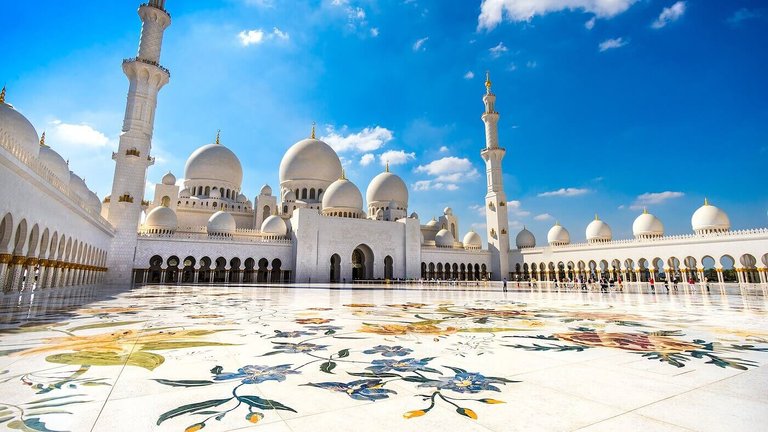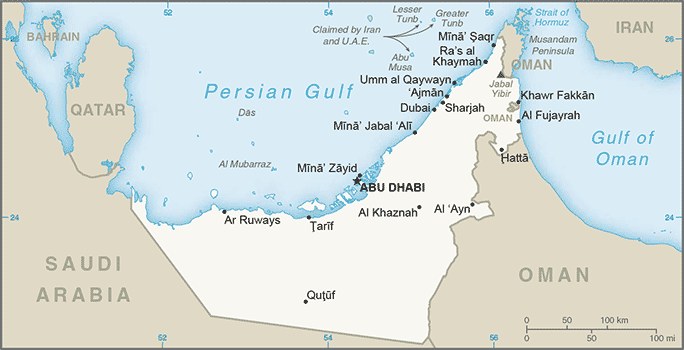
The United Arab Emirates (UAE), an oil-rich Arab country, is located on the southeast side of the Arabian Peninsula. This country, bordering Oman and Saudi Arabia, comprises seven emirates: Abu Dhabi, Ajman, Dubai, Al Fujayrah, Ras al-Khaymah, Shariqah, and Um Al Qaywayn.
Formerly known as the Trucial States, a term dating from the 19th-century agreement between British and Arab leaders, the UAE was created when six of the emirates merged in 1971; Ras al-Khaymah joined in 1972.
Sheikh Zayed bin Sultan Al Nahyan served as president from the country’s founding until his death in 2004. His son, Khalifa bin Zayed Al Nahyan, succeeded as president. The Supreme Council comprises the individual rulers of the seven emirates, and the president and vice president are elected by the council every five years. The position of the presidency is an unofficial hereditary post for the Al Nahyan family.
The council also elects the Council of Ministers and an appointed Federal National Council reviews legislation. The federal court system includes all the emirates except Dubai and Ras Al-Khaymah. All of the emirates have a mix of secular law and sharia (Islamic law) with civil, criminal, and high courts.
The UAE is a member of the United Nations and the Arab League, and has diplomatic relationships with more than 60 countries. It plays a moderate role in the Organization of Petroleum Exporting Countries (OPEC) and the Gulf Cooperation Council (GCC).
The UAE plays a vital role in the affairs of the region because of its massive foreign development and moderate foreign policy positions. Unlike its neighbors, the UAE, under the leadership of Sheikh Zayed, promotes religious tolerance. Sheikh Zayed also encouraged foreign development and investment.
The UAE is one of the largest producers of oil, after Saudi Arabia and Iran, in the Middle East. Since its formation, the UAE has transformed from an impoverished desert country to a modern, wealthy country.

Zayed invested the country’s oil revenues in hospitals, schools, and universities and gave all citizens free and universal access to these public services. He distributed free land and held majlis (traditional Arab consultation councils) that were open to the public.
As a contemporary liberal, Zayed advocated for women’s rights and for the education and participation of women in the work force. Education was one of the most significant achievements in the rapid transformation of the UAE. The country boasts numerous universities and colleges and hundreds of schools.

Nice post and informative too. wanna see more.
Instructive stuff, keep on ;)